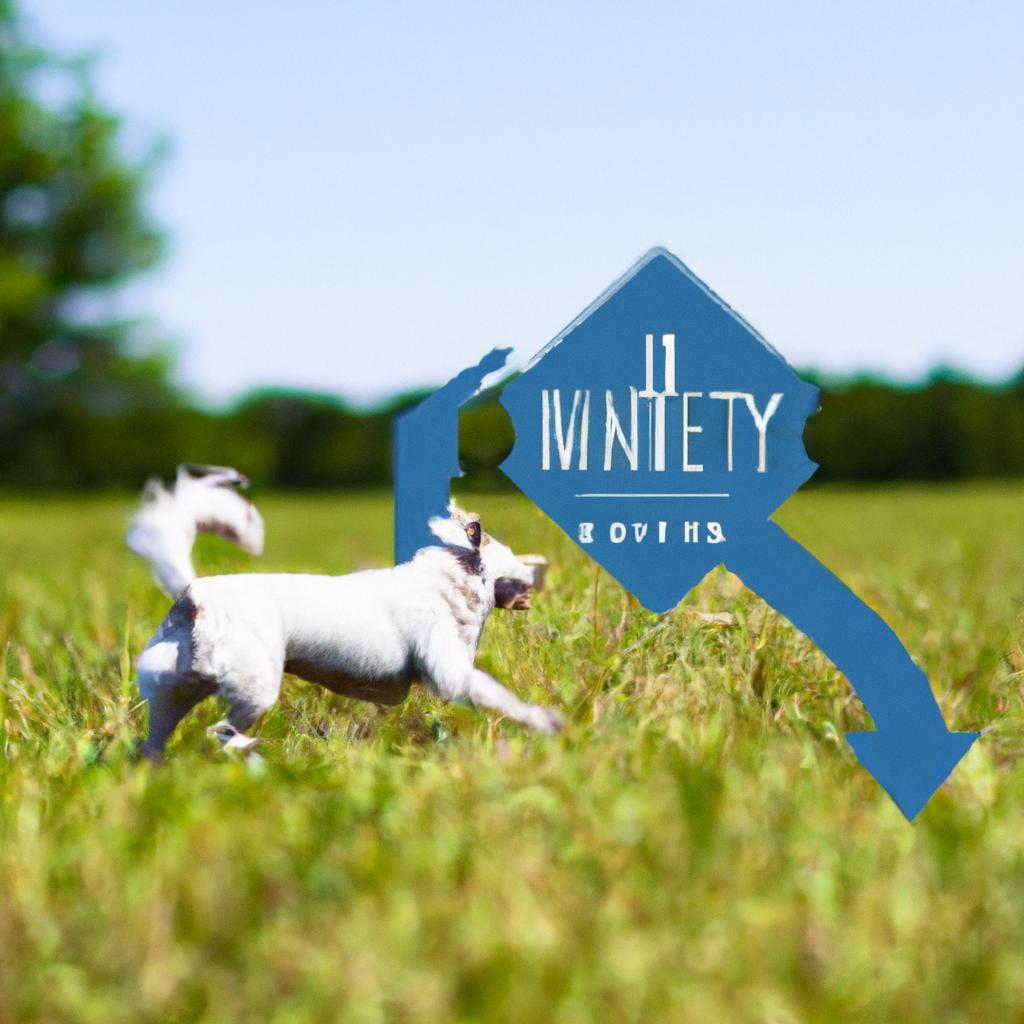In a quiet village, there lived a peculiar dog named Whisper. Unlike others, Whisper never barked; instead, he communicated through gentle nudges and soulful eyes. Villagers were captivated by his calm demeanor, often finding solace in his presence. Whisper became a symbol of peace, teaching everyone that sometimes silence speaks louder than words. His unique way of connecting fostered deeper bonds among the villagers, proving that true companionship transcends the noise. Embrace the quiet; you might just discover a world of understanding.
Contents
- Understanding the Unique Characteristics of the Basenji Dog
- Exploring the Benefits of Owning a Non-Barking Breed
- Training and Socialization Tips for a Quiet Companion
- Choosing the Right Environment for Your Basenji’s Well-Being
- Q&A
Understanding the Unique Characteristics of the Basenji Dog
The Basenji dog is often referred to as the “barkless dog,” a title that stems from its unique vocalization. Unlike most breeds, Basenjis produce a distinctive sound known as a “barroo,” which is a mix between a yodel and a howl. This characteristic makes them particularly appealing to those who appreciate a quieter canine companion. Their vocalizations are not only rare but also serve as a form of communication that reflects their mood and needs.
In addition to their unusual vocal traits, Basenjis are known for their **independence** and **intelligence**. These dogs possess a strong hunting instinct, which can sometimes translate into a stubborn streak. Their intelligence means they require mental stimulation and engaging activities to keep them happy. Owners should be prepared to invest time in training and socialization to harness their cleverness effectively. This breed thrives in environments where they can explore and engage with their surroundings.
Another fascinating aspect of the Basenji is their **grooming needs**. With a short, fine coat, they are relatively low-maintenance when it comes to grooming. They are known for their cleanliness, often likened to cats in their grooming habits. This makes them an excellent choice for individuals or families looking for a dog that doesn’t require extensive grooming sessions. Their natural cleanliness also means they are less prone to doggy odors, making them a delightful addition to any home.
Lastly, Basenjis are known for their **playful and energetic nature**. They are highly active dogs that require regular exercise to maintain their physical and mental health. Daily walks, playtime, and opportunities to run are essential to keep them content. Their playful demeanor can be infectious, bringing joy and laughter to any household. However, potential owners should be aware of their high energy levels and ensure they can provide the necessary outlets for their activity needs.
Exploring the Benefits of Owning a Non-Barking Breed
Owning a dog that doesn’t bark can significantly enhance the tranquility of your home environment. For those living in apartments or close quarters, the absence of barking means less noise pollution, allowing for a more peaceful living space. This can be particularly beneficial for individuals who work from home or have young children who require a quiet atmosphere for naps and study. A non-barking breed can help maintain a serene ambiance, making your home a sanctuary of calm.
Moreover, these breeds often exhibit a unique set of personality traits that can be incredibly appealing. Many non-barking dogs are known for their **gentle demeanor** and **affectionate nature**, making them wonderful companions. Their calm disposition can foster a relaxing environment, encouraging bonding moments without the distraction of excessive noise. This can lead to a deeper connection between the dog and its owner, enhancing the overall pet ownership experience.
Another advantage of choosing a non-barking breed is the potential for reduced stress levels. Dogs that don’t bark can help alleviate anxiety for both the pet and the owner. The absence of barking can minimize the likelihood of disturbances that might trigger stress responses, such as sudden loud noises or unexpected visitors. This creates a more harmonious living situation, allowing everyone in the household to feel more at ease.
non-barking breeds can also be a great choice for families with children or elderly members. The quieter nature of these dogs can help teach children about responsibility and empathy without the added challenge of managing a noisy pet. For seniors, a calm dog can provide companionship without overwhelming them with excessive energy or noise. In essence, selecting a non-barking breed can lead to a more balanced and enjoyable family dynamic.
Training and Socialization Tips for a Quiet Companion
When it comes to nurturing a calm and composed canine companion, effective training and socialization are paramount. Start with **positive reinforcement techniques** that reward desired behaviors. This approach not only fosters a trusting relationship between you and your dog but also encourages them to repeat those behaviors. Use treats, praise, or playtime as incentives to reinforce quietness and calmness in various situations.
Socialization is equally crucial for developing a well-adjusted dog. Expose your pet to a variety of environments, people, and other animals in a controlled manner. This exposure helps them feel comfortable and secure, reducing the likelihood of barking due to anxiety or fear. Consider the following strategies for effective socialization:
- Arrange playdates with other dogs.
- Visit dog-friendly parks during quieter hours.
- Introduce your dog to different sounds and sights gradually.
- Enroll in group training classes to enhance their social skills.
Consistency is key in both training and socialization. Establish a routine that incorporates regular training sessions and social outings. This predictability helps your dog understand what is expected of them and reinforces their learning. Make sure to practice commands that promote quietness, such as “settle” or “quiet,” in various settings to generalize their understanding. The more consistent you are, the more confident your dog will become.
Lastly, be patient and understanding throughout the process. Every dog learns at their own pace, and some may take longer to adapt to new situations than others. Celebrate small victories and remain calm during setbacks. By fostering a supportive environment, you’ll not only cultivate a quiet companion but also strengthen the bond between you and your furry friend, ensuring a harmonious household for years to come.
Choosing the Right Environment for Your Basenji’s Well-Being
Creating a suitable environment for your Basenji is essential for their overall happiness and health. These dogs thrive in spaces that allow them to express their natural instincts while feeling secure. Consider a home that offers a balance of indoor comfort and outdoor exploration. A well-fenced yard is ideal, as it provides a safe area for your Basenji to roam and play, while also keeping them away from potential dangers.
Basenjis are known for their intelligence and curiosity, so an environment that stimulates their minds is crucial. Incorporate **interactive toys** and **puzzle feeders** to keep them engaged. Additionally, providing a variety of textures and surfaces to explore can satisfy their natural curiosity. A designated play area with safe, durable toys will encourage healthy play and prevent boredom, which can lead to undesirable behaviors.
Socialization is another key factor in your Basenji’s well-being. They are generally friendly and enjoy the company of other dogs and people. Arrange for regular playdates or visits to dog parks where they can interact with other pets. However, ensure that these environments are safe and controlled, as Basenjis can be sensitive to chaotic situations. A calm, structured setting will help them feel more at ease and confident.
Lastly, consider the temperature and climate of your living space. Basenjis are sensitive to extreme weather conditions, so it’s important to provide a comfortable indoor environment. Ensure they have a cozy spot to rest, away from drafts or direct sunlight. During hot weather, access to shade and fresh water is vital, while in colder months, a warm bed and protection from the elements will keep them happy and healthy.
Q&A
-
What breed of dog is known for not barking?
The Basenji is famously known as the “barkless dog.” Instead of barking, they produce a unique sound called a “barroo,” which is more of a yodel. This makes them an excellent choice for those seeking a quieter canine companion.
-
Are Basenjis completely silent?
No, Basenjis are not completely silent. While they do not bark, they can still make various sounds, including yodels, growls, and whines. Their vocalizations are generally less disruptive than traditional barking.
-
Why do some dogs bark while others do not?
Barking is a natural behavior for many dog breeds, primarily used for communication. Breeds like the Basenji have been selectively bred for traits that minimize barking, focusing instead on other forms of communication. This makes them unique among dog breeds.
-
Is a Basenji the right dog for me?
If you prefer a quieter dog that still has a playful and affectionate nature, a Basenji could be an ideal choice. However, they require regular exercise and mental stimulation, so ensure you can meet their needs before deciding.
the Basenji stands out as a unique breed that defies the typical canine stereotype. Its silent nature, combined with intelligence and loyalty, makes it an ideal companion for those seeking a calm and quiet pet. Consider welcoming a Basenji into your home!

大家好,我是彼得潘,專業的手法身體治療師。我喜歡探索和研究各種主題,並透過與人工智慧的合作分享專業、實用、有趣的文章。我們定期進行人工審核,以確保內容的準確性。如果您發現文章中有任何不準確的地方,請隨時與我們聯繫,我們會及時糾正。您可以透過 [email protected] 與我們聯繫。



